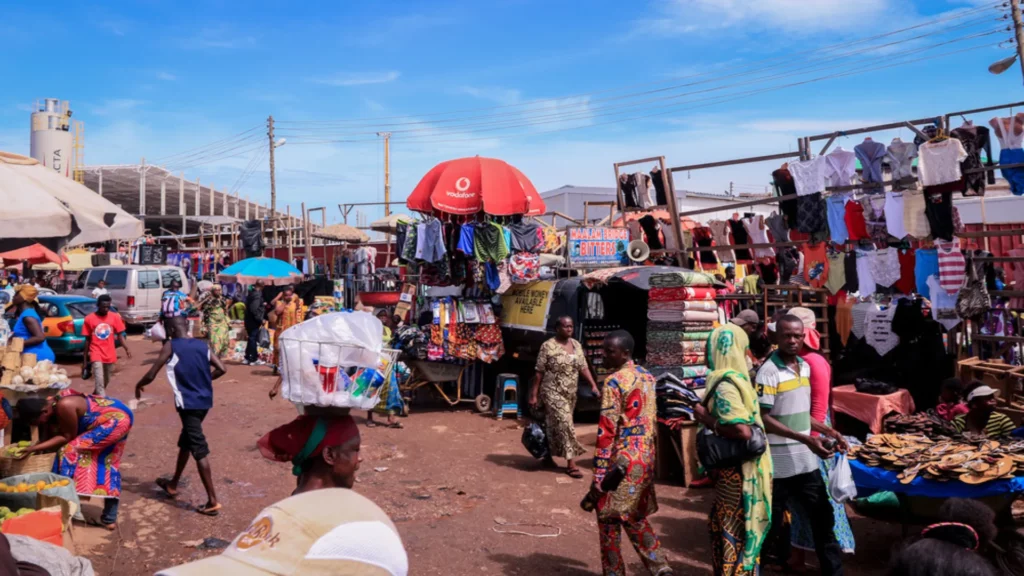Finalised in June 2024, Ghana’s finance ministry agreed upon a pact with the official creditor committee to formalise a debt restructuring deal, which could then allow for a new funding tranche from the IMF.
To help disburse funds under an International Monetary Fund (IMF) bailout program and alleviate the country’s worst economic crisis in decades, Ghana’s parliament passed a $2.8 billion debt restructuring agreement with 25 creditor nations, including China and France, on Tuesday.
The second-largest cocoa producer has been facing serious economic challenges for nearly a decade now, and the government had to sign a memorandum of understanding (MoU) with its creditors in January that formalises a debt restructuring agreed upon the previous year. This was an important milestone for Ghana, as it had defaulted on most of its external borrowing in December 2022.
Finalised in June 2024, the West African nation’s finance ministry agreed upon a pact with the official creditor committee to formalise a debt restructuring deal, which could then allow for a new funding tranche from the IMF. After this agreement was finalised, the IMF executive board could move ahead with the approval for a second review of a $3 billion loan package for Ghana and the release of the next tranche of $360 million.
There were 25 official creditor countries, including the US, the UK and Germany, and they were each expected to sign the agreement individually. The confidence of these international creditors underscored global support for Ghana’s economic recovery.
In 2023, the IMF sanctioned a $3 billion three-year loan program for Ghana, of which about $600 million was provided for immediate disbursement. At the time, the IMF had emphasised that securing debt restructuring agreements with external creditors was crucial to successfully implement the Extended Credit Facility loan in the country. The international financial institution hoped that with this assistance, the country would be able to adopt a strong program of reforms to revitalise growth and reduce its debt burden.
Reuters confirmed that Ghana’s parliamentary report said terms of the debt treatment offer a debt service relief of $2.8 billion from 2023-2026. Under the terms of the agreement, debt service payments due between December 20, 2022, and December 31, 2026, will be rescheduled and will be capitalised and repaid from 2039 to 2043.
According to the Reuters report, the Official Creditor Committee established interest rates of 1% to 3% for rescheduled debts, based on their initial contractual rates. This move allowed Ghanaian treasury to accrue savings at lower-than-market rates.
Ghana’s good news was not just limited to these 15 years of reprieve, but also included a revision in the economic rating as assessed by the financial services ratings company Fitch Ratings. Earlier this week, upon reviewing the cocoa and gold producer’s economic recovery momentum, Fitch upgraded Ghana’s credit rating to ‘B- ‘as a result of increased creditor confidence and falling inflation.
Similarly, S&P also upgraded Ghana’s score in May. Fitch’s ratings came around the same time as the country’s inflation levels dropped to 18.4%, the lowest since 2022. Despite these votes of confidence, the road to Ghana’s recovery remains precarious. Credit appears to be stabilising and price pressures are diminishing; however, the Bank of Ghana’s high interest rate of 28% is hindering borrowing and investment, particularly for small businesses.
Additionally, private investors continue to exercise caution in light of the gold producer’s substantial public debt and its exposure to global economic disruptions. However, experts believe this could mark a pivotal juncture, provided that both businesses and policymakers take bold steps to strengthen the nation’s still-delicate, yet gradually improving economic foundation.
Ghana’s parliamentary report concluded that the Official Creditor Committee finds debt restructuring vital to restore, maintain and further push macroeconomic stability and debt sustainability. In order to complete its debt restructuring, Ghana cannot solely rely on the IMF disbursements and is therefore negotiating support from commercial creditors.
